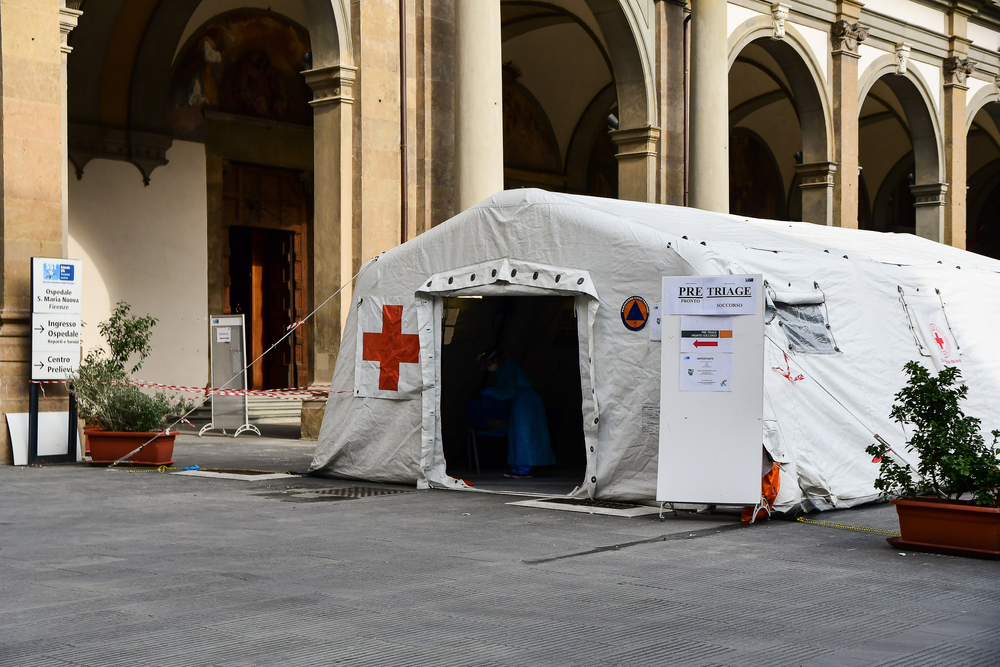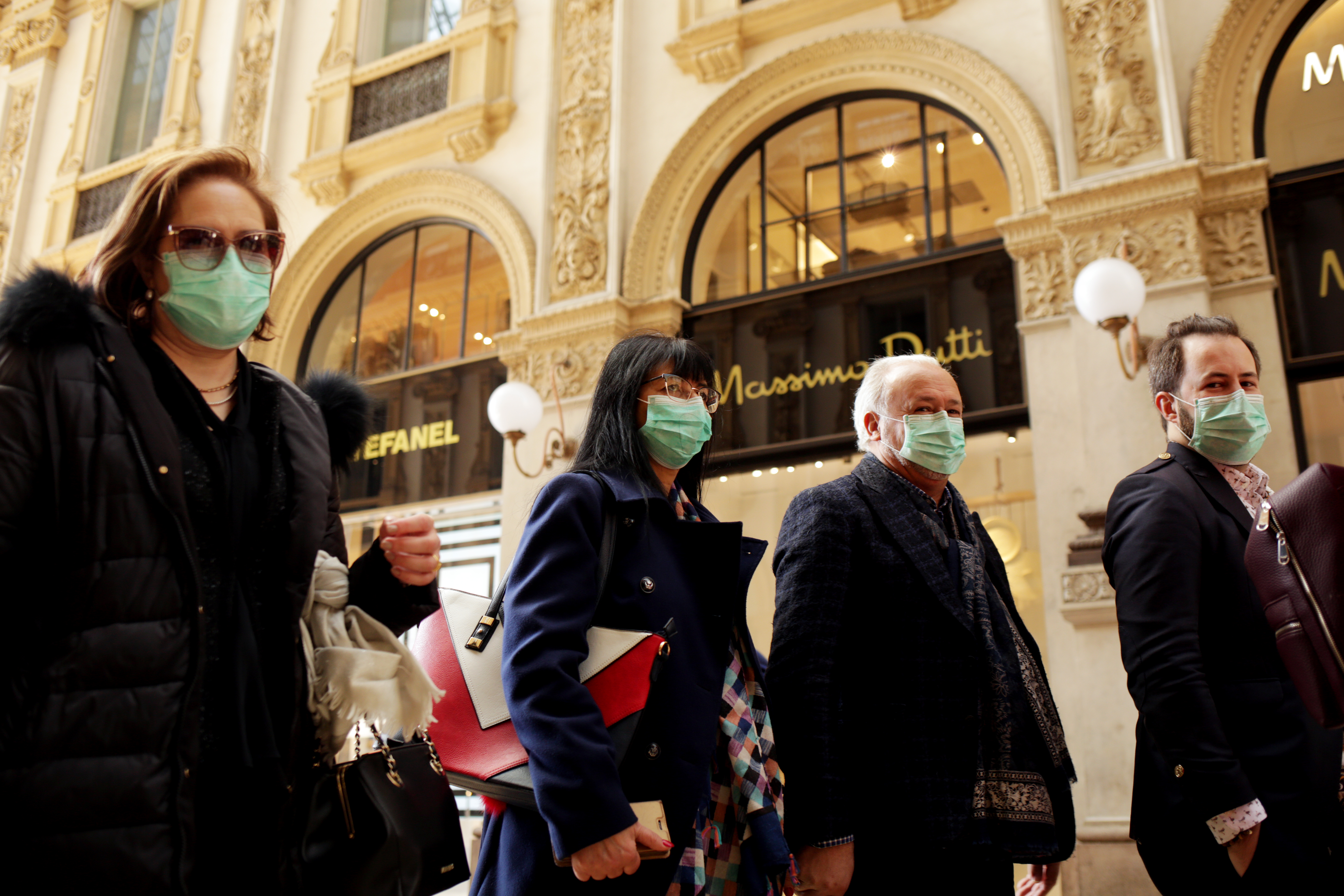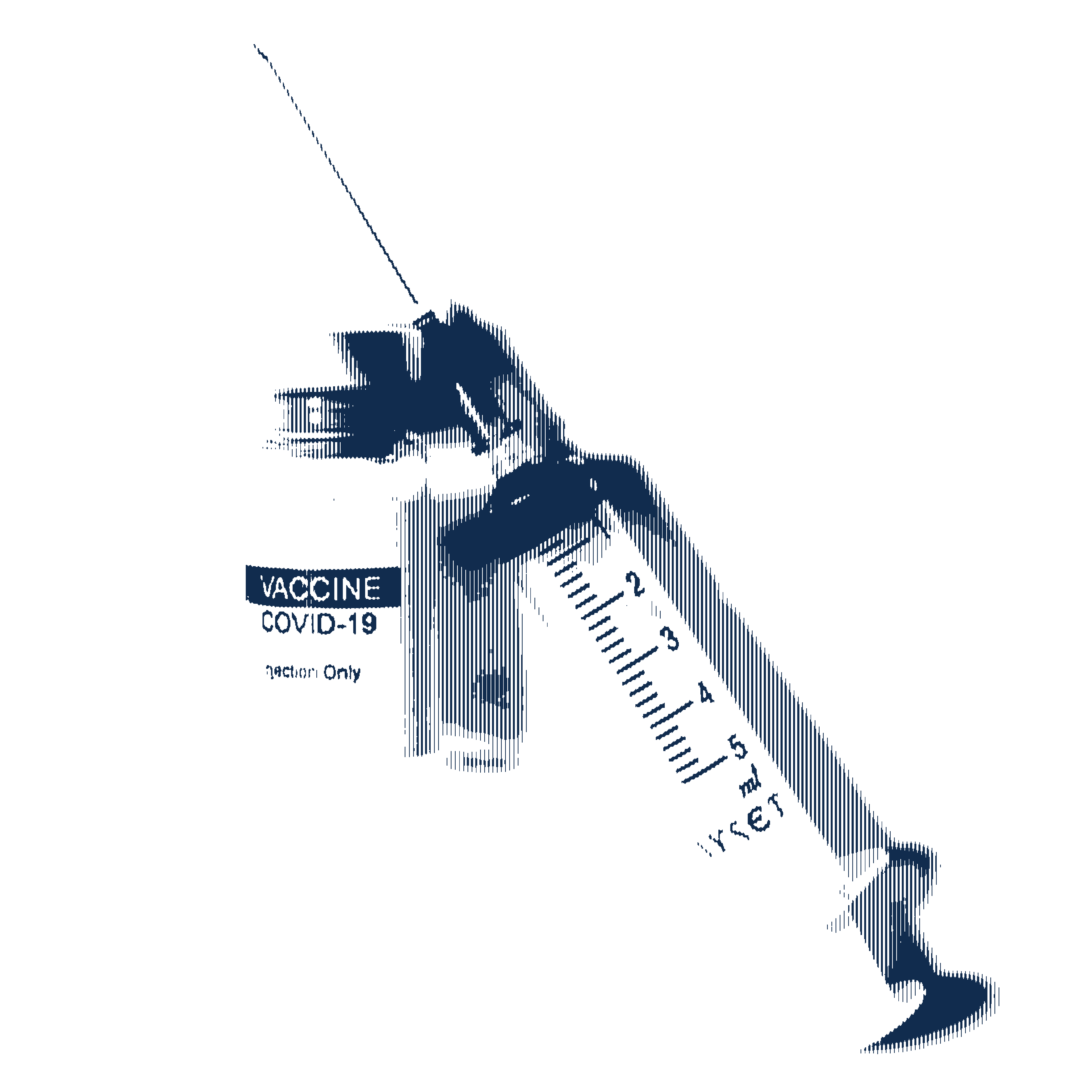
In 1867, during a cholera outbreak in Sicily, the ailing and aged workers in southern Italy's abundant lemon fields refused to work, fearing for their health as the disease spread. Mafia bosses intervened, providing the field owners with laborers who were threatened with blackmail or preyed upon for their hunger and willingness to sacrifice their health for steady pay and meals. In exchange for the bosses' help, the landowners would pay with parcels of the estates. During the outbreak, in Naples—then the largest city in Italy, an impoverished, overcrowded den—access to public healthcare was at an all-time premium. The city, which had recently been stripped of its title of regional capital, saw money and investments sent north instead, and soon the city fell into disrepair as illegal activities buttressed the economy.
Nearly two decades later, during another cholera outbreak which killed 8,000 Italians, 6,000 of whom lived in Naples, the Italian parliament loaned 100 million lire to the city for its reconstruction—a bailout that contributed to the rise of the corrupt class of Neapolitan executives who overran the city and were known as the "high Camorra." In his Royal Commission of Inquiry into Naples published in 1901, Senator Giuseppe Saredo wrote a scathing indictment against the burgeoning mafia class as the city entered its Risanamento, or clean-up, initiative to improve living conditions: "Better the disease than the cure."
Some of Europe's plagues, outbreaks and pandemics throughout history have begun, in part, in Italy. And with every emergency, money is sent to isolate the infection, to support the population and prop economies facing certain collapse. As it was 150 years ago, today, while governments work to quell the novel coronavirus—their attention shifting to rising death tolls, monitoring the movement of infected persons and tracing their contacts, keeping morgues open and refrigerator trucks running to cool formerly warm bodies—another virus moves even quicker, though not wholly undetected.
"Those who have their own business must keep their guard up about the possible mafia advances. Around Palermo, the whole retail sector attracts mafiosi," a business owner in Palermo, who asked to remain anonymous for fear of mafia repercussions, told me. "When people say the mafia no longer intervenes in that world, or do so only partially, I don't think they tell the truth."
The man, whose family has owned a shoe and clothing retailer in the south for decades, said that the old mafia, with its rules and structure and strict omertà was on its way out. A new, perhaps less violent and more industrious, mafia was on the rise. "I'm talking about the collection of pizzo," he said. Protection money.
During two months under lockdown, as the Carabinieri, the Italian forces tasked with enforcing the quarantine restrictions that began to lift on May 4, checked certificates of travel for homebound Italians, the mafia has sowed its powers from Palermo, in the country's south, to the northern Lombardy region where the outbreak of the virus which causes COVID-19 was first discovered in Europe.
As one source, who is under police protection from the mafia, told me, the pandemic has been "a perfect storm" for the mafia as it sought and successfully gained ground in the north of the country, a wealthy region that had until recently bucked the growing influence of the country's criminal south, and deeper into Europe. "Criminal organizations precede the unification of Italy," the source said. "They were there before the Italian state. And they have always thrived in pandemics."
"Everything is a message"
For weeks at the start of the pandemic, when the first case in Italy was identified in the northern part of the country on February 21, officials and anti-mafia prosecutors warned of the mafia's intention to capitalize on the lockdown and outbreak. The balcony singing, which originated in Italy and spread to Spain and the United States as a sign of solidarity with each country's medical workers, has finished.
Signs of growing tensions later prompted Italy's interior minister, Luciana Lamorgese, to warn of "riots by groups of extremists." Her warning was aimed at the mafia, which, as previously reported by Newsweek, has capitalized on the pandemic by distributing sundries and other necessities to families in lockdown as a nation remained homebound without government assistance.
When nearly two dozen shoppers raided German and French-owned grocery stores in the country's south, attempting to storm out with shopping carts full and refusing to pay, prosecutors believe the Cosa Nostra, the Sicilian mafia, had influenced the looters. At times of crisis, mafiosi are known to reduce the usually high cost of their services, offer loans and deliver help. Italian mafias, in particular, pride themselves on their territory of origins. They wield power and political authority. Their home base is ripe for recruiting members and extortion. They operate as brokers, bankers, protection and prosecution, judge and jury, de facto leaders in times of crises.
During the 1929 economic crisis, Lucky Luciano not only stopped asking for protection money from the garment industry shops in Manhattan—he also offered loans to small businesses so they could weather the storm, often in exchange for a stake in the business. In November 1930, Al Capone opened a soup kitchen at 935 South State Street, in Chicago, serving some 2,200 Chicagoans every day. The Japanese Yakuza opened soup kitchens for the displaced during the 1995 Kobe earthquake, the 2011 Tōhoku earthquake and tsunami, and the 2016 Kumamoto earthquake. After the eruption at the Fukushima nuclear plant, the organized crime syndicate sent its soldiers to clean up the plant.
In March, the Inagawa-kai, the third-largest sect of Yakuza in Japan, collected more than 30,000 masks and other necessary goods nationwide and sent them to charities in China. They also offered to clean the Diamond Princess when it was docked outside Tokyo with a "Do Not Board or Disembark" order, but the government refused. And in Italy, as the economy shutdown and more than 60 million Italians were told to stay at home beginning March 4, small-time criminals exploited the mask and hand sanitizer shortages by selling stashes of the medical equipment at a premium. Mafia relatives in the south were seen delivering groceries and supplies to families under quarantine.
"The purpose of the welfare they guarantee in economically depressed areas is to legitimize their pretense in the eyes of the people," Nicola Gratteri, the anti-mafia prosecutor battling the 'Ndrangheta crime syndicate, told Newsweek. "There is a need to avoid giving the mafia room to maneuver."
Federico Varese, a professor of criminology at the University of Oxford and a senior research fellow at Nuffield College, told Newsweek that the actions of mafia during times of social and economic downturn straddle magnanimity and altruism. "Mafia members are also people and might genuinely feel for the plights of their communities," Varese said. "But they are special people." Generally, he said, they have ulterior motives. As Giovanni Falcone, the late Italian judge and prosecutor in Palermo murdered by the Mafia in 1992, in the country's increasingly depressed south, once said: "Everything is a message, everything is full of meaning in the world of Cosa Nostra, no detail is too small to be overlooked."
In Calabria, bosses were wary about overcharging protection money so that people will not rebel. Meanwhile, Mafia bosses across the country have been released due to concerns over the coronavirus in Italy's prisons, and roughly 12,000 organized crime members have sought release. Despite this, anti-mafia prosecutors are still monitoring the activity of suspected individuals and 91 arrests were recently made in Palermo. The investigating judge who ordered the raid, Piergiorgio Morosini, said: "The clans are ready to take advantage of the current situation. They are always ready to hunt businesses in need."
"Mafia can destroy democracy"
Those businesses now include the healthcare system, into which the Camorra, the 'Ndrangheta and the Cosa Nostra, the most versatile and well-known Italian mafias, have recently invested. In July 2010, Carlo Antonio Chiriaco, the health director of the Azienda Sanitaria Locale in Pavia, the local healthcare system in Pavia, south of Milan, and one of the largest in Europe, was arrested for collaborating in association with the mafia. In April 2014, investigators found links between the directorate general of the hospital in Caserta outside Naples. In May 2015, 10 million euros ($10.8 million) were seized from the same hospital, funds which were tied to mafia endowed contracts. In 2016, prosecutors shuttered a pharmacy in Milan believed to have been bought with drug money by intermediaries for the purpose of money laundering, expanding community ties, and managing the trafficking of narcotics.
Reasons for the mafia to entrench themselves in the country's healthcare system are the lucrative contracts used to launder money through laundry, cleaning, sanitization and construction contracts, ambulatory services and cafeteria catering. "They can have a lot of important information on, for example, the weak points of the healthcare companies, such as the mechanical ventilators they're missing, the face masks," Roberto Saviano, the author of Gomorrah: Italy's Other Mafia, told Newsweek. "And they can provide all of this." Saviano said that their reach has extended beyond healthcare and into the operation of funeral parlors. "They're even making money at that stage."
As the outbreak spread, the Guardia di Finanza, the Italian authorities charged with investigating money laundering, suspended their investigations. Carabinieri were posted outside cities to surveil the people they normally protected.
"Mafia can destroy democracy," Sergio Nazzaro, who in January became the spokesperson for Italy's deputy minister of health, and is the author of a book on the Nigerian mafia in Italy, told Newsweek. "We have a democracy. They have guns. We discuss, they shoot. We prefer to be more slow, but you have to be effective. Of course, the mafia is not bureaucratic. They have a lot of money and it's a run against time."
"We have to fight this danger"
Throughout the two months of nationwide quarantine, businesses were closed and jobs were lost. Unemployment, for both salaried workers and those who rely on contract and freelance labor to survive, soared as Prime Minister Giuseppe Conte failed to quickly establish relief funds, from parliament and from partners across the European Union.
On May 13, the government approved a 55 billion euros ($59.6 billion) cash bailout for individuals and small businesses. Conte met with resistance when asking the European bloc to shoulder the financial burden equally, despite all countries not being as hard-hit as Italy, money which the 27 member states have not yet agreed to. Economists say this won't be enough to repair the economic damage caused by the pandemic, so will deepen Italy's years-long economic malaise dating back to the 2008 crisis. Anti-mafia prosecutors told Newsweek that this money, if distributed quickly, could help stymie the advance of criminal activity and cash advances.
Vincenzo Ciconte, a professor of Italian mafia history at the University of Pavia, and the author of several books on the Italian mafia, said that mafias weren't as strong as they were 20 years ago, but that the slow distribution of federal economic aid could help those groups gain ground. "What I notice is that compared to other historical moments, in Italy today there is greater awareness and understanding of the danger, there is a greater understanding that we have to fight this danger," Ciconte said. "It's important to avoid a few businesses giving up their ownership to the mafia."
He was measured when noting that Italy was the only European member state with legislation robust enough to indict mafia activity. Elsewhere in Europe, criminal associations to the mafia are not as easily prosecutable. The rise and spread of the mafia is a second pandemic, he said, and one not cloistered in Italy.
"Sending money to Italy doesn't only mean helping Italy recover and overcome the current crisis, but means helping Europe itself," Ciconte said. "Because if the mafias do not weaken in Italy, they become stronger in Europe."
Alessio Perrone contributed reporting from Milan.
COVID-19 Update: The connection between local and global issues–the Pulitzer Center's long standing mantra–has, sadly, never been more evident. We are uniquely positioned to serve the journalists, news media organizations, schools and universities we partner with by continuing to advance our core mission: enabling great journalism and education about underreported and systemic issues that resonate now–and continue to have relevance in times ahead. We believe that this is a moment for decisive action. Learn more about the steps we are taking.









